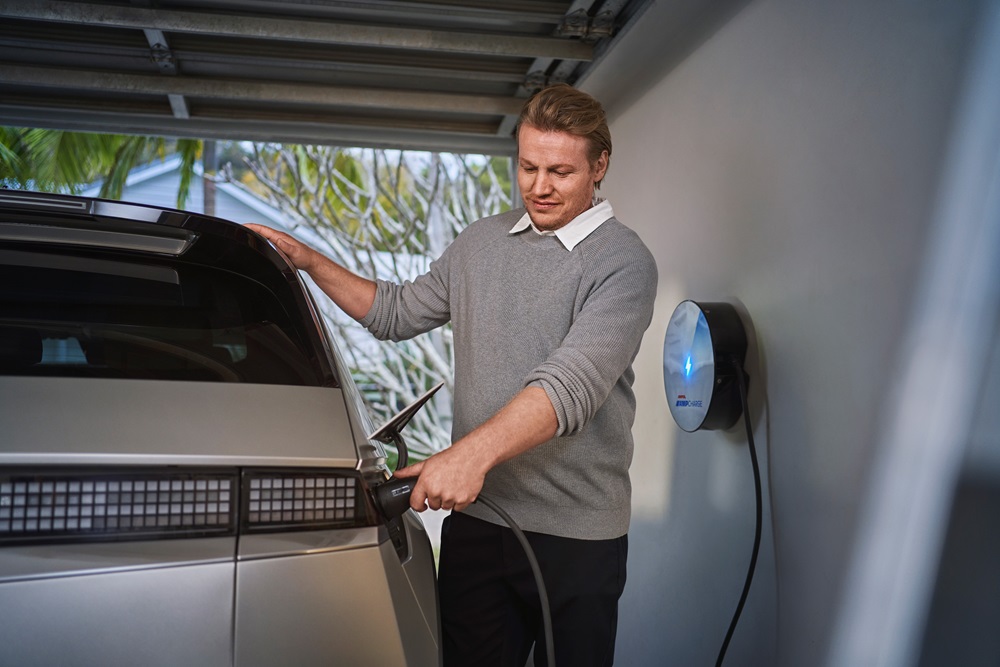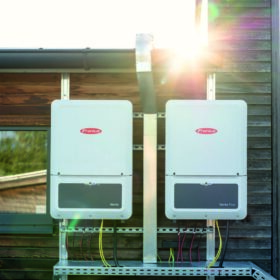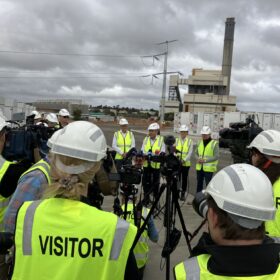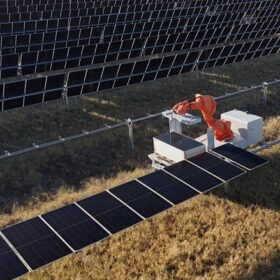Ampol has unveiled the next stage of its e-mobility ecosystem with the release of the up to 7 kW AmpCharge home electric vehicle (EV) charger as the company transitions its business away from a purely service station-based model.
Brent Merrick, executive general manager of commercial fuels and energy at Ampol, said the release of the residential EV charger is an important step forward in the execution of company’s future energy and mobility strategy, including its objective to reduce emissions in the transport sector and support the uptake of battery EVs.
“We are continuing to grow our range of electric vehicle charging solutions as part of our commitment to supporting customers through the energy transition,” he said.
Ampol, which last year announced a partnership with Brisbane-based EV charger manufacturer EVOS involving that company’s SB7 home unit, said the Australian-made AmpCharge-branded charger offers up to 7 kW of power and comes with a Type 2 charging cable that is compatible with most new EVs. It’s suitable for single- and three-phase homes, is weatherproof, and can be connected wirelessly to schedule and monitor charging sessions via the AmpCharge Driver Portal. The chargers are backed by a two-year product warranty.
Merrick said with the AmpCharge home EV chargers now available nationally, Ampol has a suite of products and services to help charge EVs at the forecourt, at destinations, and at home.
The launch of the residential EV charger comes after Ampol recently unveiled its 100th AmpCharge branded EV charging station that are being rolled out at service stations in New South Wales, Victoria, Queensland, and Western Australia. It also recently installed its first ‘at-destination’ chargers at a shopping centre in Sydney which are the beginning of the company’s planned rollout of EV chargers at third-party portfolio sites.
“We recognise our electric vehicle charging ecosystem has the potential to play a critical role in supporting customers reduce their transport emissions,” Merrick said.
“As our customers look to alternative mobility technologies, we are well placed to support them on their journeys.”
EV sales continue to grow in Australia with data from the Federal Chamber of Automotive Industries (FCAI) showing 38,014 EVs have been sold this year to the end of the September.
This number excludes Tesla and Polestar as these brands stopped reporting their sales to the FCAI earlier this year. Their sales figures are however published by the Electric Vehicle Council, which lists sales of 30,750 for Tesla and 1,330 for Polestar in the first three quarters.
Add these figures with the FCAI data and there were 70,094 EVs sold in the first nine months of 2024, up 6.6% on the same period last year when 65,743 were sold.
This content is protected by copyright and may not be reused. If you want to cooperate with us and would like to reuse some of our content, please contact: editors@pv-magazine.com.









By submitting this form you agree to pv magazine using your data for the purposes of publishing your comment.
Your personal data will only be disclosed or otherwise transmitted to third parties for the purposes of spam filtering or if this is necessary for technical maintenance of the website. Any other transfer to third parties will not take place unless this is justified on the basis of applicable data protection regulations or if pv magazine is legally obliged to do so.
You may revoke this consent at any time with effect for the future, in which case your personal data will be deleted immediately. Otherwise, your data will be deleted if pv magazine has processed your request or the purpose of data storage is fulfilled.
Further information on data privacy can be found in our Data Protection Policy.